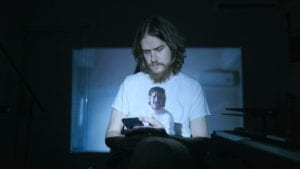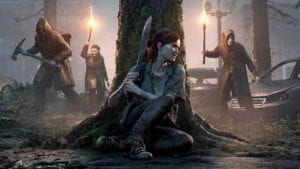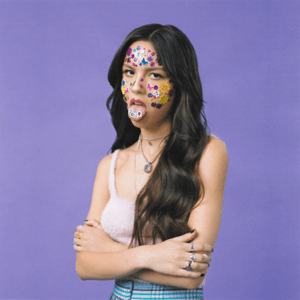
I am many things, but I am not the friend you come to when you want to stay in and watch a comedy special. The phrase “comedy special” evokes flashbacks from college, where I pretended to like Kevin Hart for more than one mediocre man. I’m a product of the streaming era — give me drama! Give me production value! Give me a female lead!
So when Jay suggested that we watch Bo Burnham’s Inside, I begrudgingly agreed. To be fair, I’m a fan of Burnham’s latest work, especially his Academy Award-nominated film Eighth Grade and his turn in Promising Young Woman. Still, I remained unconvinced that these credits would be enough to convert me into a comedy fan.
90 minutes later, I unceremoniously picked my jaw up off the floor. Inside is a perfect encapsulation of how it feels to be a Very Online young adult in 2021. The special was so personal and relatable that I felt uncomfortable at times.
For the uninitiated, Burnham took “work from home” to the next level with the creation of Inside. He wrote, directed, and starred in the film from his home over the course of the COVID-19 pandemic. Inside is composed of song-driven vignettes, covering topics from anxiety to online presence to social activism. I could write a thesis on Inside’s status as an incredible social document of 2020, but I’ll keep my thoughts short here. (However, if any textbook publishers are interested in an unresearched, inexpert perspective, I’m available.)
Although Inside was powerful from start to finish, three songs particularly resonated with me:
- “All Eyes on Me.” In this song, Burnham describes his codependent relationship with audiences amidst a world that’s crumbling around him. He punctuates the song with an alternating stream of commands (“Get your f—— hands up!”) and questions (“Are you feeling nervous? Are you having fun?”). In the emotional crux of the song, he discusses his desire to return to the comedy stage in 2020 after suffering panic attacks in the years before. Of course, before he could make his return, the COVID-19 pandemic paralyzed the world as we knew it. The song is so personal that Burnham’s delivery is painful to watch. Throughout “All Eyes on Me,” Burnham sings directly to the camera, his face awash in blue light. It’s chilling imagery for a song that feels both like a power anthem and a requiem.
- “Welcome to the Internet.” As I’ve mentioned in previous posts, I measure my life by the technological achievements born across its span. The Internet is chief among these. I can divide my personal eras into how I was spending my time on the internet — at 13 I discovered Internet forums! I joined Facebook at 15! I created a Reddit account at 19! Along the way, I’ve stumbled across amazing things and some really, really dark shit. Burnham addresses our unprecedented access to information in “Welcome to the Internet.” His delivery sounds like a carnival barker as he discusses both the wonders (“Show us pictures of your children”) and the horrors (“See a man beheaded”) of the World Wide Web.
- “Bezos I.” As an Upstanding Citizen, I maintain that Jeff Bezos is a cartoonish villain who exemplifies everything wrong with capitalism. Regardless of my distaste for Bezos, I’m a repeat Amazon Prime customer. Burnham turns our collective fascination/repulsion with Bezos into the best ’80s anthem not written by Duran Duran. You will get this song stuck in your head.
The term “comedy special” does Inside an injustice. The film is written, edited, and performed to mirror an ugly moment in time. Burnham underscores the anxiety wrought by the pandemic with flashes of humor and humanity. Inside is the answer to question all of us are asking right now: “What the hell just happened?”
(The songs are catchy as hell, too.)


